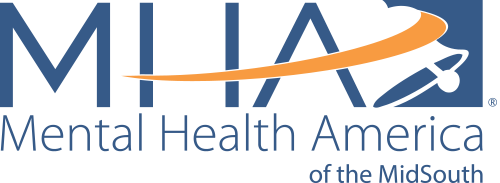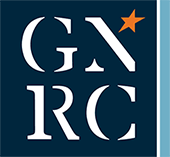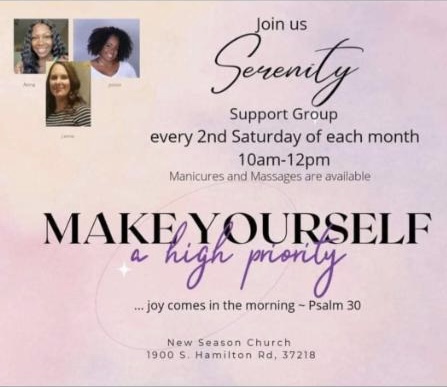
TENNESSEE CAREGIVER COALITION – PROVIDES RESPITE FUNDS TO CAREGIVERS
Our mission is to help primary caregivers who are caring for someone with special needs in the same home. While the TCC can help with identifying the resources for your self-care plan, you are empowered to select the appropriate programs, facilities or individuals to care for your loved one during your break.
National Family Caregiver Support Program (NFCSP)
https://www.tn.gov/aging/our-programs/caregiving.html
The purpose of the National Family Caregiver Support Program (1-866-836-6678) is to help families care, as long as possible, for older relatives with chronic illness or disability in their homes. This program is available through the Commission and local Area Agencies on Aging and Disability (AAADs). The NFCSP was authorized under the Older Americans Act Amendment of 2000. Funding is provided by the U.S. Administration on Aging.
Provides assistance to:
- Adults age 60 and over
- Adults with Alzheimer’s Disease or a related disorder
- Grandparent/relative caregivers (not parents) who are 55 years of age or older and caring for a minor child
Services include:
- Counseling and support groups
- Caregiver training
- Respite care
- Personal care
- Homemaker services
- Adult daycare
*Availability of services may vary depending on service area.
Lifespan Respite Grant
Respite is a temporary break from caregiving
- Through a partnership with Tennessee Respite Coalition, provides low- or no-cost respite services through a voucher system
- Senior Companions – volunteers who provide companionship
- Statewide Respite Helpline at 1-888-579-3754
Contact
To find out more about caregiver support programs in your area, call 1-866-836-6678 or 1-888-579-3754.
Long-Term Care Ombudsman
https://www.tn.gov/aging/our-programs/long-term-care-ombudsman.html
This program provides assistance to elderly Tennesseans residing in nursing homes, homes for the aged, and assisted care living facilities. The Ombudsman is available to help residents and their families resolve questions or problems and will advocate for solutions to problems for qualified residents of long-term care facilities.
When residents and families cannot resolve their problems through consultation with the facility staff or governmental agencies involved, they should contact their District Ombudsman. The Ombudsman works with many agencies and may be able to help resolve questions or concerns that involve state and federal agencies administering services to the elderly. Concerns can include quality of care, financial information, resident rights, admissions, transfer, and discharge. Also included are questions regarding nursing homes, homes for the aged, assisted care living facilities, Medicaid, and Medicare.
The Ombudsman takes time to listen to the concerns of the resident. Residents can share concerns about their situations or other personal concerns. *The Ombudsman will keep these matters confidential. The Ombudsman will assist in trying to resolve concerns and problems and can also explain resident rights and responsibilities.
Nursing Home Resident Rights
- A safe and clean living environment
- Privacy
- Information
- Exercise their civil rights
- Participate in or refuse treatment
- Voice grievances without retaliation
- Manage personal finances
- Adequate and appropriate medical and nursing care
- Be free of physical and chemical restraints
- Take part in community activities
- Be treated with courtesy and respect
- Private visits and unrestricted communications
- Not to be transferred or discharged from the home
- Be free from physical, verbal, mental, and emotional abuse
For Relatives and Friends
As a friend or relative, you may have concerns about a resident’s care or the cost of care. Likewise, you may have questions about obtaining services from resources outside the facility. Ombudsman can:
- Provide information regarding the admission process to nursing homes, assisted care living facilities and homes for the aged
- Help clarify nursing home, assisted care living facility, or home for the aged regulations that apply to your situation
- Make helpful referrals to other agencies
- Help find solutions to small problems before they get too big
- Promote healthy and realistic attitudes of residents and families toward nursing homes
- Respect requests for anonymity
- Act as a resource for staff training needs
Volunteer Ombudsman
Trained volunteer representatives of the Office of the State Long-Term Care Ombudsman Program visit residents in nursing homes or other long-term care facilities and establish a regular presence in the facility. They provide information about resident rights, quality of care, and quality of life to residents and family members. Volunteers also observe conditions, advocate for residents, and handle simple complaints.
Volunteers are the eyes and ears of the Long-Term Care Ombudsman Program and are rewarded by knowing that their presence can make a difference in the lives and care of long-term care residents.
For more information about becoming a volunteer Ombudsman, email teresa.teeple@tn.gov.
Contact
For additional questions regarding the Long-Term Care Ombudsman Program, call or write:
State Long-Term Care Ombudsman
Tennessee Commission on Aging and Disability
502 Deaderick Street, 9th Floor
Nashville, TN 37243-0860
Tel: 615-925-1552
Fax: 615-741-3309
Toll Free: 877-236-0013
TDD: 615-532-3893
Email: teresa.teeple@tn.gov
GREATER NASHVILLE (DISTRICT 5)
• Cheatham • Davidson • Dickson • Houston • Humphreys • Montgomery • Robertson
• Rutherford • Stewart • Sumner • Trousdale • Williamson • Wilson
Melinda Lunday
Tel: 615-218-5221
mlunday@mchra.com
https://www.tn.gov/aging/our-programs/long-term-care-ombudsman.html
Mid-Cumberland Human Resource Agency
1101 Kermit Drive, Suite 300
Nashville, TN 37217-5109
Tel: 615-840-9311
Fax: 615-833-2585
Lee Korzan
(615) 850-3918
Lee.korzan@mchra.com
Website: www.mchra.com
Consumer Financial Protection
The Office for Older Americans Consumer Financial Protection Bureau issued a new consumer advisory on federal benefits and garnishment in May 2015. The message, which includes links to additional information, reads as follows:
Did you know that Social Security and VA benefits are generally protected from garnishment to pay a debt to a private person or company? Most debt collectors can’t garnish money in your bank account to pay a debt.
You can download a fact sheet from the consumer advisory: http://www.consumerfinance.gov/blog/consumer-advisory-your-benefits-are-protected-from-garnishment/
Here’s how the federal protection works:
- Banks must automatically check your account history to see if Social Security or VA benefits were direct-deposited to your account in the last 2 months.
- If so, your bank must protect 2 months’ worth of benefits in your account and let you use that money.
- If your account has more than 2 months’ worth of benefits, your bank can freeze the extra money.
Consumers can also use a new sample letter to tell a debt collector that their Social Security or VA benefits are protected from garnishment.
Additional Resources
If government funds, such as Social Security, are being spent on things that are of no benefit to a vulnerable adult, call Adult Protective Services at (888) 277-8366.
Call the Tennessee Division of Consumer Affairs at (615) 741-4737 or toll free at (800) 342-8385 to complain about unscrupulous business practices.
If an investment is involved, call the Tennessee Securities Division at (615) 741-2947 or toll free at (800) 863-9117.
For resources on financial protection for older Americans, click on http://www.consumerfinance.gov/older-americans/.
 Mental Health America of Midsouth
Mental Health America of Midsouth
https://mhamidsouth.org/caregiver-support/
Contact Name: Lynn Wood
Phone: 615-269-5355
United Cerebral Palsy Association – Contact Margaret at 615-242-4091 ext. 105. They will provide or let borrow free durable medical equipment.
Westend Home Care Connection (www.westminsterhomeconnection.org) – Contact Emily Coleman at 615-693-2153. Westminster Home Connection repairs and modifies homes to empower older adults and persons with disabilities to age in place safely and with dignity.
Hendersonville Church of Christ – 615-824-6622. They do Home Repairs
AgeWell Middle Tennessee
Email: info@agewelltn.org
Phone: (615)353-4235
Helpline Hours: M-F 9am-2pm
Address: 3511 Belmont Blvd, Nashville TN 37215

GREATER NASHVILLE REGIONAL COUNCIL: Aging and Disability Services
https://www.gnrc.org/163/Aging-and-Disability-Services
What kind of help is available to caregivers?
- GNRC provides referrals, educational resources, and funding to support the needs of caregivers.
- Referrals to available services, support groups, counseling services
- Education for those caring for someone experiencing Alzheimer’s Disease, Dementia, or any related neurological condition
- Funding for respite care or enrichment programs:
- Adult daycare
- In-home or personal care respite
- Transportation
- Caregiver reimbursement
- After-school, tutoring, and camps
The primary purpose of the Aging and Disability Program is to coordinate the delivery of services and programs which promote an environment conducive to enhancing the quality of life of the region’s older population.
GNRC’s Information and Assistance program provide a helpline designed to assist seniors and adults with disabilities navigate through community resources and the long-term care system by providing information, referrals, and assessments. The helpline is available Monday through Friday from 8 a.m. to 4:30 p.m.
Call Our Helpline
Call our Information and Assistance Hotline to learn more about any of GNRC’s programs and services.
615-255-1010 or 866-836-6678
Monday – Friday 8 a.m. – 4:30 p.m.
What does GNRC do to assist older adults?
GNRC offers a direct connection to services available to older adults and adults with disabilities in the middle Tennessee area. With one phone call, we can assess the specific needs of an individual and provide a range of options that allow them to choose the support they need to protect their quality of life.
What does the Information and Assistance helpline provide?
The Information and Assistance helpline is staffed by a certified counselor who will listen to your needs and concerns and provide guidance in finding services in the community that can meet your needs. Whether it is a computer class at a local senior center or in-home services for a loved one, you will get to talk to a real person to guide you through the maze of programs. GNRC counselors will assist in connecting you to the appropriate resources for your needs.
What programs and services are available?
GNRC keeps a database of over 2000 programs that offer an array of services. Although there may not be an immediate solution to your need, or a program available that can assist, we can promise that you will be able to speak with a trained professional who will listen and provide the best assistance possible.
What do these services cost?
It costs you nothing to talk with one of our trained Information and Assistance Counselors. The services that you are referred to may, or may not, have a cost. GNRC keeps a database of a wide array of services that vary in cost. Many of these services are no cost or sliding-scale, while others such as private home care or assisted living services have a cost. As part of assessing your needs, the counselor will consider your financial situation when determining what services best meet your needs.
How do you assess someone’s needs?
During the first call to GNRC, a member of our Information and Assistance team will ask questions to learn more about the specific situation and needs. Depending on the type of service needed, an in-person assessment may be provided. Our team has extensive education and experience serving clients with varying needs.
Can the Information and Assistance helpline connect me to personal care, Meals on Wheels, or homemaker services?
Yes! If you need services to assist in maintaining independence in your home, start by calling our helpline. Our Information and Assistance Counselors will listen to your concerns and discuss with you the different programs available. From there, if you want to continue with the application process we will arrange to have someone call you for a telephone interview. This interview is more extensive and will help us gain a better understanding of any physical and cognitive limitations you may have and to help us to understand the level of care you need.
FAMILY CAREGIVER SUPPORT
Sometimes people caring for older adults and adults with disabilities need help finding resources and support to care for themselves as well. The Greater Nashville Regional Council provides a range of resources and support programs that assist family and informal caregivers to care for their loved ones at home for as long as possible.
What kind of help is available to caregivers?
These services are provided at no cost to eligible caregivers.
- Information to caregivers about available services
- Assistance to caregivers in gaining access to the services
- Caregiver education for those whose loved one is experiencing Alzheimer’s Disease, Dementia or any related neurological condition, providing explanations of the progression of the disease and coping mechanisms for the family
- Connection to support groups and counseling services
- Respite care to temporarily relieve caregivers from their responsibilities
- Supplemental services to compliment caregiver efforts, on a limited basis
Program Eligibility*
To be eligible for support services, the caregiver must meet one or more of the criteria below.
- An adult family member (age 18 years or older) or other adult providing informal care to individuals 60 years of age or older.
- An adult family member or other adult providing informal care to individuals of any age with Alzheimer’s disease or related disorders.
- A caregiver age 55 or older providing care to an adult (ages 18-59) with disabilities.
- A grandparent or relative 55 years of age or older who is providing care to children under the age of 18 years.
Sara Fowler
Director of Aging and Disability Services
Email Sara Fowler sfowler@gnrc.org
Johnna Neel
Family Caregiver Support Counselor
Email Johnna Neel jneel@gnrc.org

Helpful Phone Numbers
Caregiver Assistance and Guardianship Information
1-866-836-6678 (toll free)
Healthcare.gov (Health Insurance Marketplace)
1-800-318-2596 (toll free)
Information and Assistance
1-866-836-6678 (toll free)
Legal Aid (free services through the Tennessee Legal Services Program or Legal Aid Office)
Legal Aid Society of Middle Tennessee and the Cumberlands: 800-238-1443
Legal Aid of East Tennessee: 865-637-0484
West TN Legal Services, Inc.: 731-423-0616
Memphis Area Legal Services, Inc.: 901-523-8822
Medicare
1-800-633-4227 (toll free)
Ombudsman (representation for people in nursing homes or other assisted living or long-term care facilities)
1-877-236-0013 (toll free)
Report Elder Abuse (physical and financial)
1-888-277-8366 (toll free) *In an emergency, dial 911.
*You can also report elder abuse online to Tennessee Adult Protective Services.
Social Security
1-800-772-1213 (toll free)
TN Disability Pathfinder
1-800-640-4636
TN Commission on Aging and Disability
615-741-2056
TN SHIP (Medicare questions and counseling)
1-877-801-0044 (toll free)
